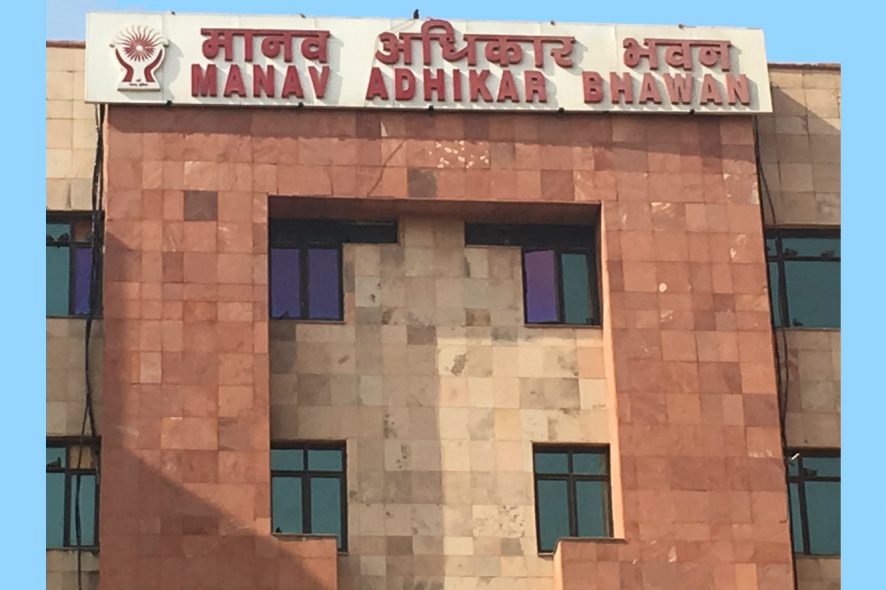National Human Rights Commission: The National Human Rights Commission, NHRC has taken suo motu cognizance of a media report that millions of unapproved antibiotics are being sold in India each year, posing a threat to the global fight against the spread of drug resistant microbes. The Commission has issued notices to the Secretary, Union Ministry of Health and Family Welfare and the Drugs Controller General of India, for detailed reports in the matter within six weeks. The authorities are expected to submit their response within the stipulated time, along with all the documents, including guidelines and circulars etc. issued on the subject and their status of implementation.
According to the media report, carried on the 6th February, 2018, a study published in the British Journal of Clinical Pharmacology reveals that multinational pharmaceutical companies continue to manufacture a large number of unapproved formulations, despite the global health crisis of rising antimicrobial resistance. India has been mentioned as having the highest antimicrobial resistance and antibiotic consumption and the parliamentary investigations have highlighted failures of the country’s drug regulatory system.
The Commission has observed that if the contents of the news report and reports of UK based researchers are to be believed, the figures mentioned in the study are alarming. As reported, population wise, India is the second largest country in the world, which makes it the largest market for the consumables, including drugs and the medicines. Allegedly, manufacturing of hazardous drugs and their sales in the open market, without the approval of the regulatory authorities, is persisting at a large scale. Hence, it raises the issue of violation of human rights of the consumers/patients.
It further observed that the right to medical care and proper diagnosis is a basic human right. The right to take required medicines, approved by the regulatory body, is also a part of human rights. The pharmaceutical companies cannot be allowed to play with the health of the general public. It is for the authorities concerned to verify, whether the irregularities mentioned in the report are still prevalent. Keeping in view, the grave danger to the human lives, it is obligatory on the part of the Government of India to take immediate corrective measures, though its regulators/ state agencies, to analyze and regulate the mechanism of approval for drugs of all kinds across the country.
While considering the news report, the Commission examined the report of the researchers at Queen Mary University of London and Newcastle University, where it has been observed that the sale of unapproved, unscrutinised Fixed Dose Combination, FDC antibiotics, undermine the measures to control antimicrobial resistance. A starting point would be a Government ban on the manufacture and sale of unapproved antibiotic formulations, commencing with dual antimicrobial FDC. Marketing of Centrally unapproved formulations of new drugs is illegal.
Reportedly, the Queen Mary University of London, which has conducted the study, has examined the availability of antibiotics and their status of approval in India. The researchers analyzed the regulatory records of the antibiotics as well as sales data from 2007 to 2012. It was found that there were 118 different formulations of FDCs being sold in India between 2007 to 2012, compared with five in the UK and the US. Of these 118 formulations, 64 per cent were not approved by the national drugs regulator i.e. Central Drugs Standard Control Organization, CDSCO even though the sale of unapproved new drugs is illegal in India. The multinational companies have reportedly manufactured 53 of the 118 FDCs formulations out of which, twenty were not approved in India, and only four were approved in the UK and US. There are 476 pharmaceutical manufacturers, including a dozen multinational companies, involved in manufacturing of 3307 branded-named products.
The said reported research study concluded that the systematic examination of Indian sales data and regulatory information confirms government claims about anti-microbial use. FDCs comprise increasing proportions of antibiotic sales but most of the formulations sold are unapproved by the CDSCO, and only a handful are approved by regulators in UK and US. The use of unapproved, unscrutised antibiotic FDC formulations is likely to contribute to India’s rising antimicrobial resistance.
National Human Rights Commission






